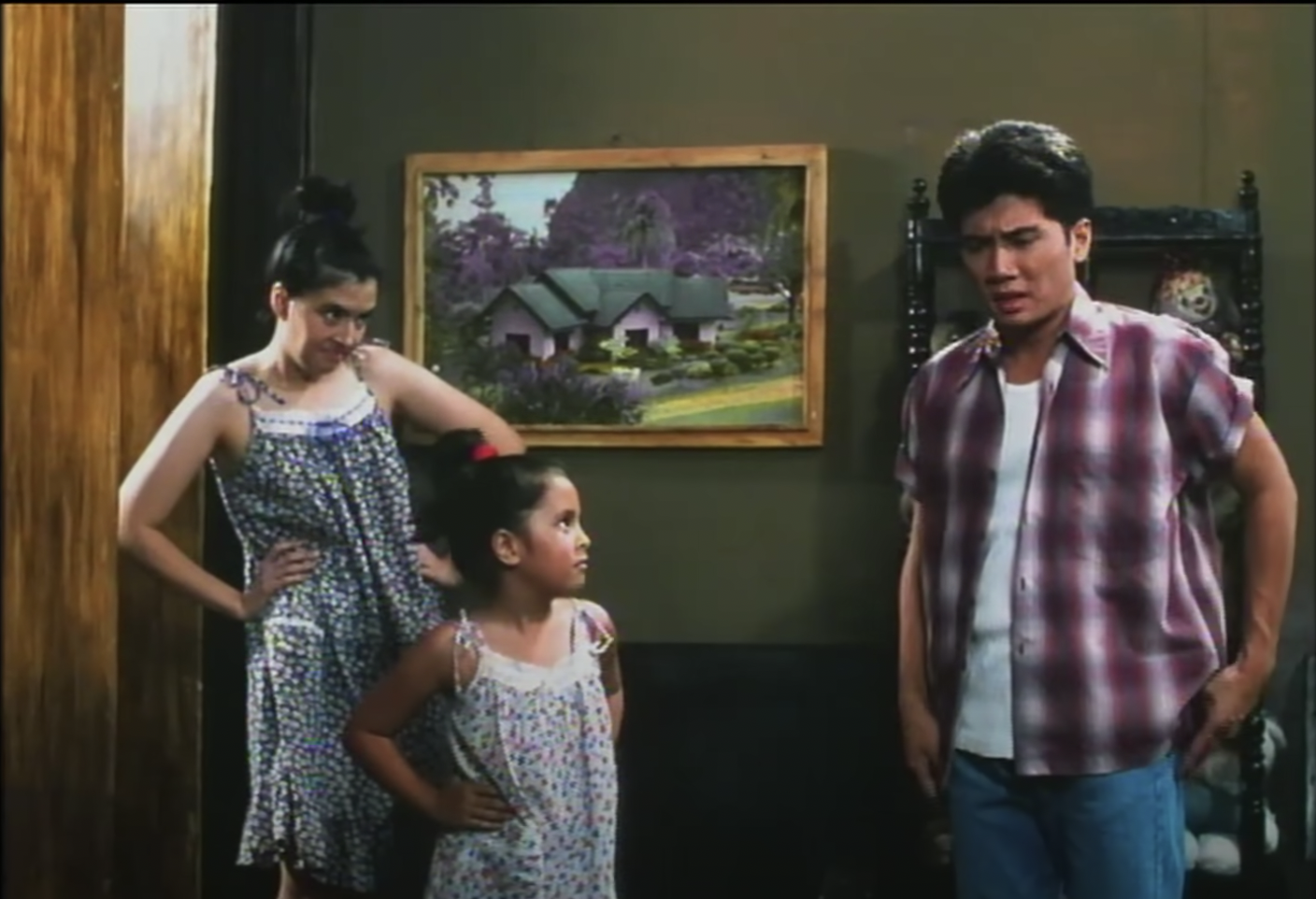Under Da Saya: Comedy of the Egocentric Pinoys
As with many other things in our culture, our attraction towards the image of machismo stems from the decades of western colonization.
Still from movie: “Hindi Ako Ander, itanong mo kay Kumander” produced by Viva
By Prencess Maun (Quezon City, Philippines)
March 31, 2022
Under Da Saya is a phrase that literally translates to being under the skirt of a woman. Way back in the 18th to 19th century, Baro’t Saya, a long dress made out of pine cloth or piña was largely worn by Filipinas. And when people saw men who seemed to fear their wives, they started to call them Under Da Saya or under the long skirts of their wives. It was not clear where the phrase originated, however, it has been around for a long time that almost every Filipino knows what it means.
Many Filipino movies, sitcoms, and teleserye have used the concept of Under Da Saya for comedic purposes. In Bong Revilla’s movie “Walang Matinik na Pulis sa Mabangis na Misis”, the male main character was seen doing all the housework with a funny soundtrack. Janno Gibbs’ starred in the movie “Hindi Ako Ander, itanong mo kay Kumander”, where a scene that featured a male actor was upset that his wife had a job and was earning more than him.
“And then I realized that if the roles are reversed, it no longer makes for good comedy. In fact, it becomes a norm”
These movies are just a few examples implying that apparently, it is hilarious when a man asks for his wife's permission to do certain things. It is also comical when a man does the laundry or when he has to ask his wife for money. And then I realized that if the roles are reversed, it no longer makes for good comedy. In fact, it becomes a norm––as if it’s only natural that women are supposed to be doing “domesticated” things like doing the laundry, washing dishes, or even having to ask for permission to do something or for monetary support.
As much as I want to believe that the Philippines is a country of gender equality, where both men and women are seen as equals and treated fairly, this phrase “Under Da Saya” never fails to remind me that it is not. Actually, it couldn't be further from the truth.
A man asking his partner to change clothes is seen as sweet and protective, but a woman asking her partner to change clothes is controlling and demanding.
A man choosing to be a househusband and doing house chores is unheard of and humiliating, but for a woman, it’s what they are meant to do?
I want to know what the difference is. Why are men being applauded for things as simple as watching a child for one day, while mothers who spent years nurturing a child are seen as irresponsible for taking a day’s rest? Why is it an insult to be Under Da Saya, when all it means is that you submit to your wife the same way she does to you?
As with a lot of things in the Philippines, our attitude stems from the 500+ years of being colonized. It is no secret that Philippine society today is highly influenced by western culture and standards. We consume their products and culture that are deeply rooted in patriarchal values. Whether we admit it or not, we put white people on a pedestal that pressures us to act like them even if it goes against who we are. We aspire to be like them because we view them as the superior race, so we tend to imitate them and in the process, forget our own identity.
The Philippines and its culture is very much different from those of western countries. Before we were colonized, we had a society that highly respects the opinion of women. We had spiritual leaders, combat soldiers, and even chieftains if there wasn’t a male heir. The Babaylans are one of the most revered women of their time. They are believed to be mediums between heaven and earth and had the ability to heal the sick. Their opinions are respected even by community leaders themselves.
Even our legends during the pre-colonial Philippines symbolize equality between genders. According to pre-colonial Filipinos, men and women were born from bamboo at the same time, in the same exact way. Another story states that men and women were molded by God from clay. Both genders were treated and seen as equals, without one being superior to the other. Unfortunately, that society was long gone and forgotten.
“The women who prefer to take the lead in a relationship would be tagged as “nakaka-sakal” (controlling) because our society today doesn’t seem to understand or can’t accept that women have their own voices and opinions.”
In the modern Philippines where the phrase Under Da Saya is commonly used, headstrong, ambitious, and direct women are often antagonized and seen as aggressive. The women who prefer to take the lead in a relationship would be tagged as “nakaka-sakal” (controlling) because our society today doesn’t seem to understand or can’t accept that women have their own voices and opinions.
Without minimizing women’s pain and suffering, we have to realize that men go through similar issues as well. The expectations of society towards men are high that some days, I feel blessed I’m not a man. They are expected to lead, be financially stable, and be mentally strong. If they divert, even a little to these standards, people see it as a sign of weakness and, often even question their masculinity. This kind of society forces men to repress their feelings and emotions and to always present a tough exterior because it is what society dictates. That expectation renders them unable to ask for help, even if they really need it, for fear of being judged and mocked.
Maybe It is time for the Philippine society to stop emulating the culture and beliefs of other countries and start embracing ours. We should respect our women, the same way we hailed them during the pre-colonial Philippines. We should start validating the feelings of men by letting them express emotions without labeling them as weak or using it as a mockery. The Philippines without its Western influences is genuinely who we are as a society so perhaps instead of trying to emulate what we see on American television, we show them that the values we hold as Filipinos are much better than theirs.



